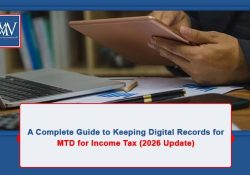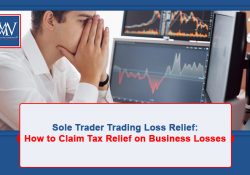VAT – how to survive the enforcement powers
With careful planning Makesworth Accountants can help businesses in the Harrow area to avoid VAT penalties.
Although some of the penalties for VAT infringements have been less severe in recent years, there is still an alarming array of enforcement powers to trap the unwary. By being aware of the problem areas and planning carefully, it should be possible to avoid becoming an unwitting victim of the system.
Late registration
You must notify HM Revenue & Customs (HMRC) if your turnover exceeds £85,000 in twelve months, or if you believe it will exceed £85,000 in the next thirty days.
The penalty for failing to notify liability falls within the single penalty system if the effective date of registration is after 31 March 2009 (see our separate title “Take care to avoid a penalty”). There is no penalty if the taxpayer has a reasonable excuse for not registering at the correct time.
After registration
Every VAT registered business needs to ensure that it is organised to deal with VAT correctly and on time:
- Is there someone in your business who controls VAT accounting and ensures that new products etc. are properly dealt with for VAT purposes?
- Do your business systems ensure that all output tax and input tax are properly recorded?
- Are systems in force to ensure that proper evidence is obtained to support VAT input tax claims?
- Where VAT is not charged on supplies made, is this correct in law and is proper evidence retained?
- Are there systems in force to ensure that non-deductible input tax is not reclaimed, e.g. most VAT on motor cars, or business entertaining?
- Is VAT always considered before contracts are made?
Default surcharge
A default occurs if HMRC has not received your return and all the VAT due by the due date. The relevant date is the date that cleared funds reach HMRC’s bank account. If the due date is not a working day, payment must be received on the last preceding working day.
A cheque must be correct in all respects and not post-dated, otherwise payment will not have been made.
Consequence of default
You receive a warning after the first default – the Surcharge Liability Notice (SLN). Do not ignore this notice. If you fail to pay the VAT due on the due date within the next five quarters, the surcharge will be 2% of the outstanding tax. The surcharge increases to 5% for the next default, and then by 5% increments to a maximum of 15%. Lower rate (2% and 5%) surcharge assessments will not be issued for less than £400. At rates of 10% and 15% the surcharge liability becomes subject to a minimum charge of £30.
Each default, whether it is late submission of the return or late payment, extends the surcharge liability period, but only late payment incurs a surcharge.
Special arrangements for small businesses
Businesses with qualifying turnover up to £150,000 will be sent a letter offering help and support following the first default rather than a SLN. This arrangement is intended to allow extra time to sort out any short-term difficulties before formally entering the default surcharge system. Any further default within twelve months will result in the issue of a SLN.
Errors on returns and claims
Incorrect returns incur a penalty under the new penalty regime.
Retention of records
The period for retaining records is six years. There is a fixed penalty of £500 for breaching this requirement.
Default interest
Interest on tax will arise in certain circumstances, including cases where:
- An assessment is made to recover extra tax for a period for which a return has already been made (this includes errors voluntarily disclosed)
- A person has failed to notify his or her liability to register (or made late notification), and an assessment covering a period longer than three months is made to recover the tax due
- An invoice purporting to include VAT has been issued by a person not authorised to issue tax invoices
Where an assessment covers a period exceeding three months, HMRC is required to break it down into return periods. This is necessary to establish the period for which interest is to be charged. Normally, interest accrues from the due date for submission of the return for the period concerned. However, the maximum period is three years, although interest will continue to run on assessments remaining unpaid after thirty days from the date of issue.
The rate of interest is set by the Treasury and is broadly in line with commercial rates of interest.
Appeals
Appeals against penalties may be made to the independent tribunal. The tribunal now has powers of mitigation in appropriate circumstances. Where the appeal is against the imposition of interest, penalties, or surcharge, the tax must be paid before an appeal can be heard.
The tribunal is given the authority to increase assessments that are established as being for amounts less than they should have been.
A formal procedure is now established for appeals to be settled by agreement. This agreement must be in writing, and there is a thirty–day cooling off period during which the taxpayer may cancel the agreement.
Access to information
HMRC has extensive powers to obtain information. It can enter premises and gain access to computerised systems and remove documents.
A walking possession agreement can arise where distress is levied against a person’s goods.
The sting in the tail
None of the above penalties or interest is allowable as a deduction when computing profits for corporation or income tax purposes.
Action points
- If you receive a VAT assessment (because you have not submitted a return), you must check it and notify HMRC within thirty days if it understates your liability
- Make sure your systems and records are adequate to enable you to establish the gross amount of tax relating to a VAT period. The preparation of annual accounts cannot be regarded as a safeguard against penalties
- Make sure you get your VAT return and payment in on time.
- Some of these penalties may not apply if there is a reasonable excuse, but the scope is limited and should not be relied upon
If in doubt, contact us. It is important that you seek professional advice as early as possible. We can help you!
If you are in the Harrow area and would like help with VAT, please contact Makesworth Accountants.
Need Accountancy Support?
For information on bespoke training, or if you have any other questions for Makesworth Accountants, please fill in your details below


















 151
151